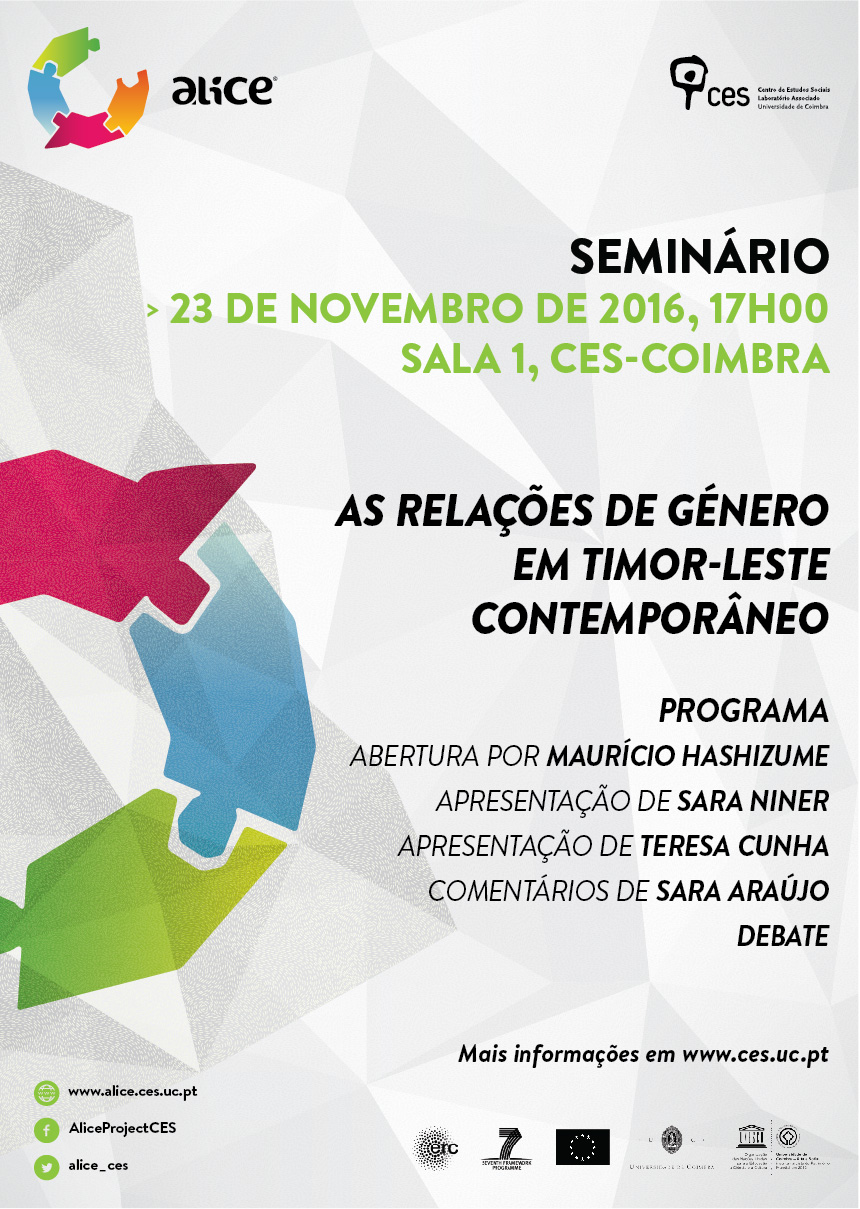Seminar followed by book presentation
Gender relations in contemporary Timor-Leste
Maurício Hashizume
Sara Niner
Teresa Cunha
November 23, 2016, 17h00
Room 1, CES-Coimbra
Abstract
Gender relations in contemporary post-conflict Timor-Leste are a result of complex historical and political events and cultural influences. A common local saying mane feto complete malu, ‘men and women complete each other’, is based on customary beliefs that men and women and their gender roles are complementary parts of a whole, harmonious social system. While noting the predominance of customary patriarchal systems, anthropologists describe the roles of women and men in Timor as ‘complementary’ or ‘interdependent’. Although women in Timor-Leste are honoured and awarded status and power in local cosmologies and social organisation can be described as matrifocal or centred on the mother, to fully appreciate gender relations a political economy analysis must also be included. This illuminates much gender diparity. History is another arena where this disparity is apparent. The predominant narrative of Timorese national identity reflects a patriarchal rationalism that overshadows other experiences, memories and perspectives. This has negative consequences for understanding the complexity of post-colonial identities, impacts on policy-making, democracy and the possibility of social transformation. Reveiwing national history from a post-colonial and feminist point of view also illuminates and challenges the place of women in contemporary histories and lead to a reassessment and deeper understanding of gender equality today.
The Seminar will mark the release of a new volume on gender relations in post-conflict Timor-Leste, Women and the politics of gender in Post-Conflict Timor-Leste published by Routledge, in which chapters from both speakers appear.
Bio
Teresa Cunha
Activity wthin the research group Humanities, Migration and Peace Studies (NHUMEP)


